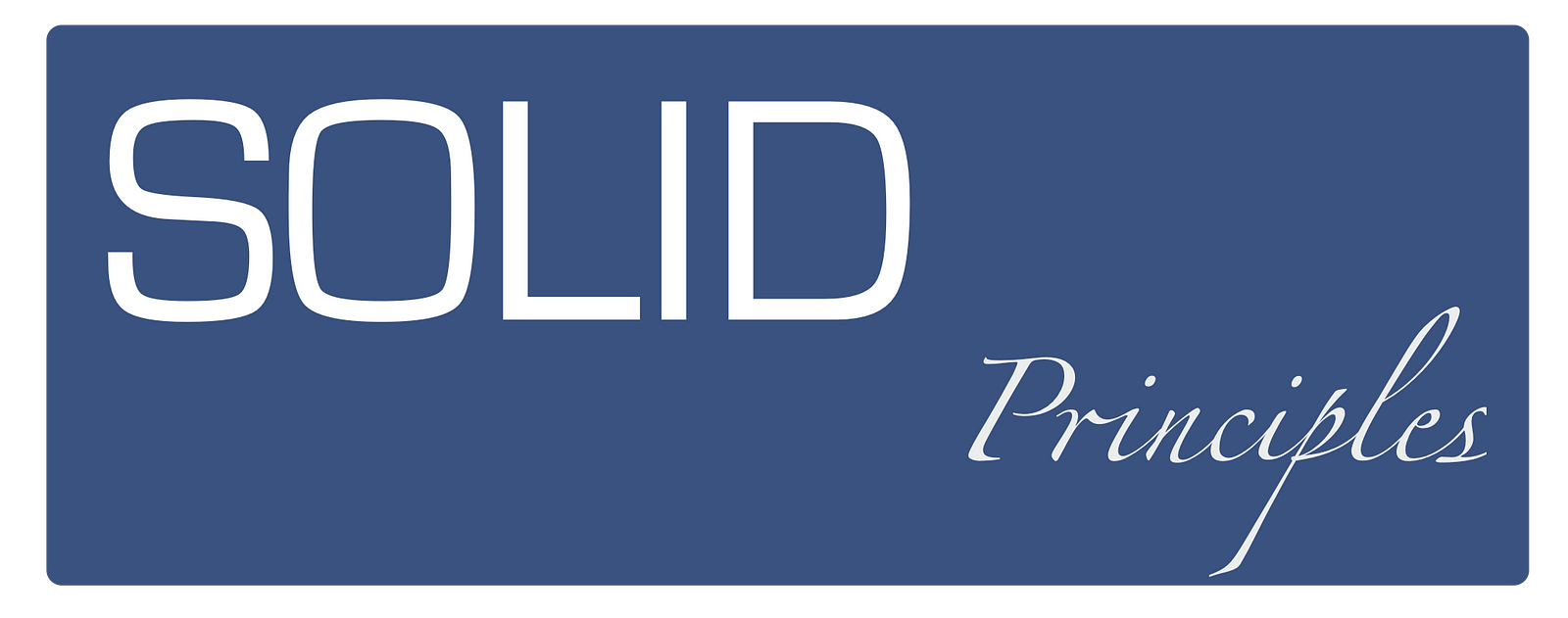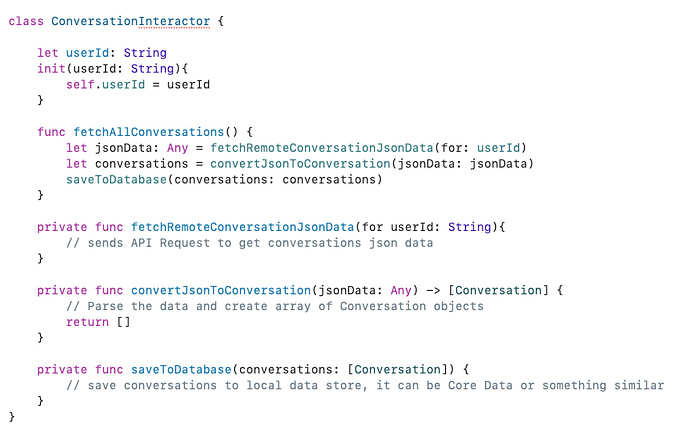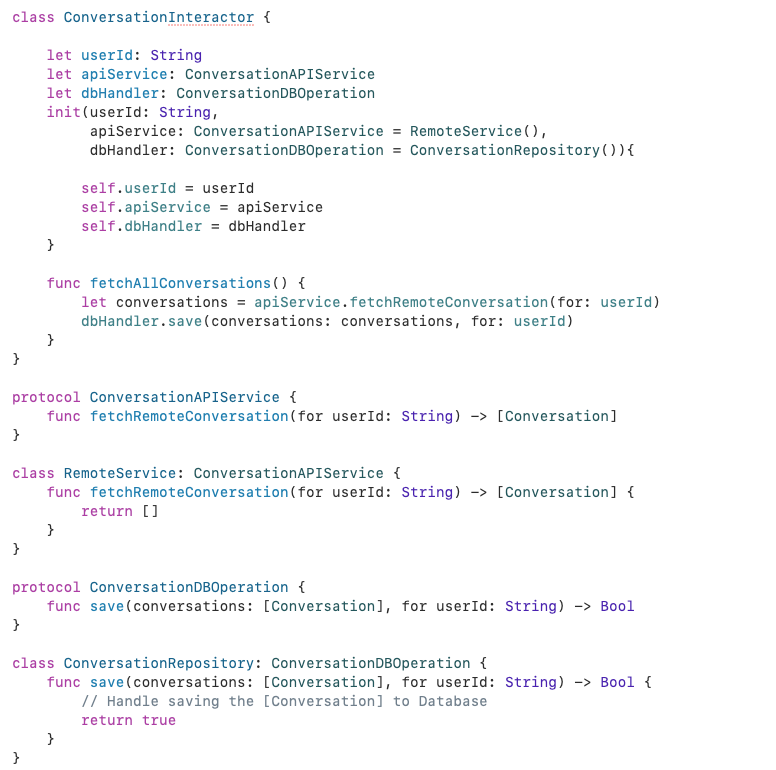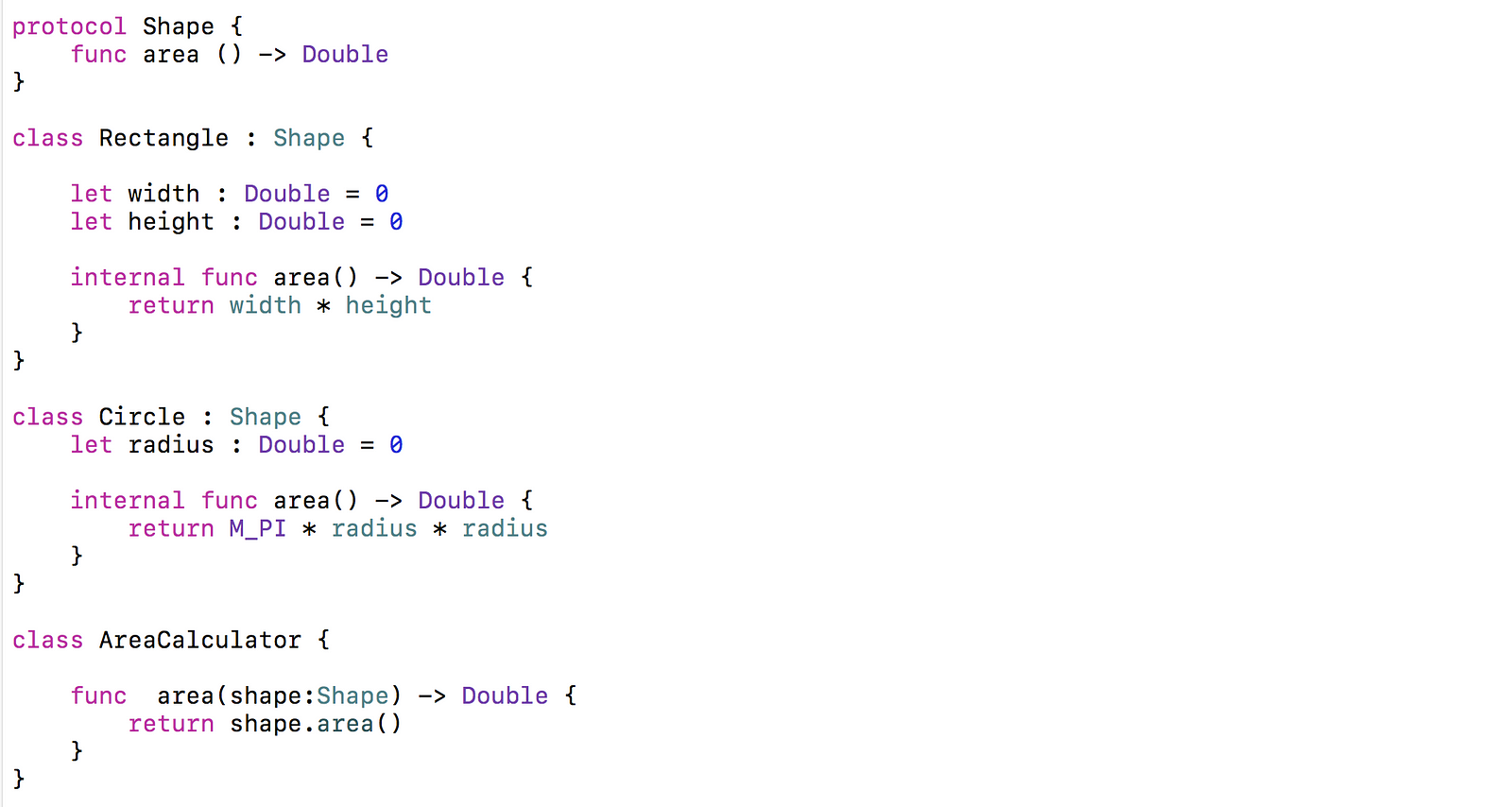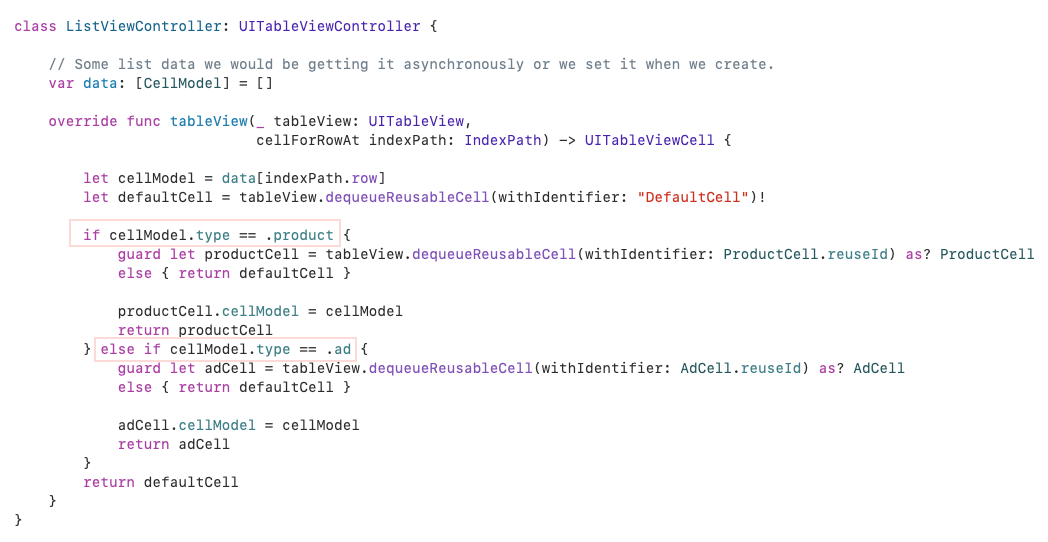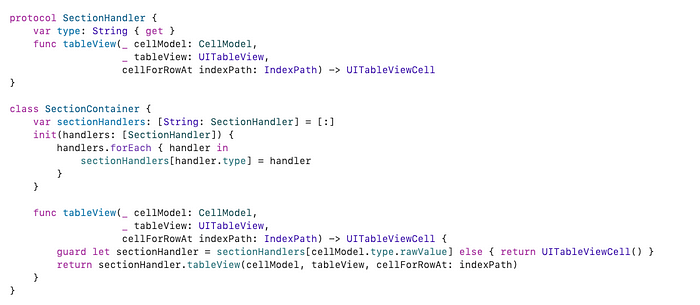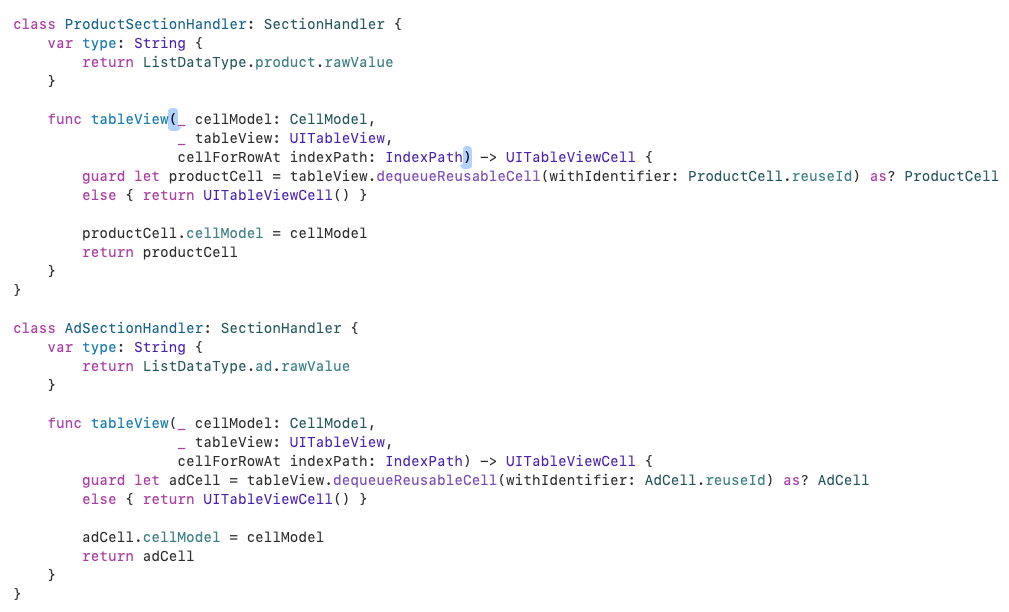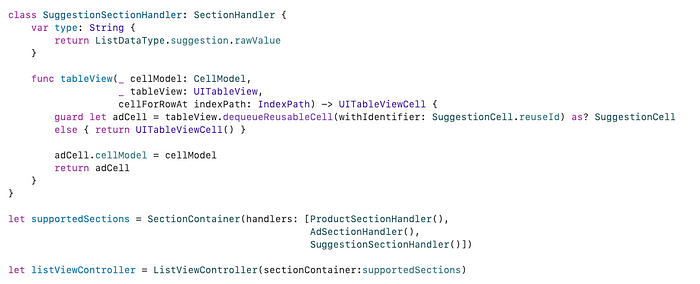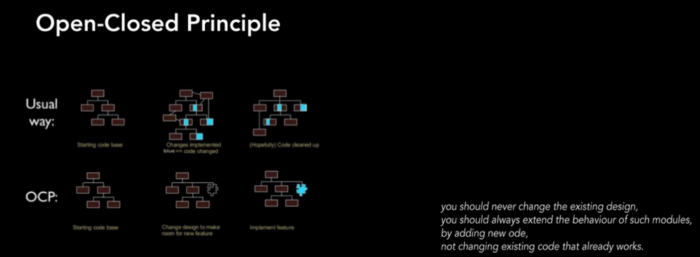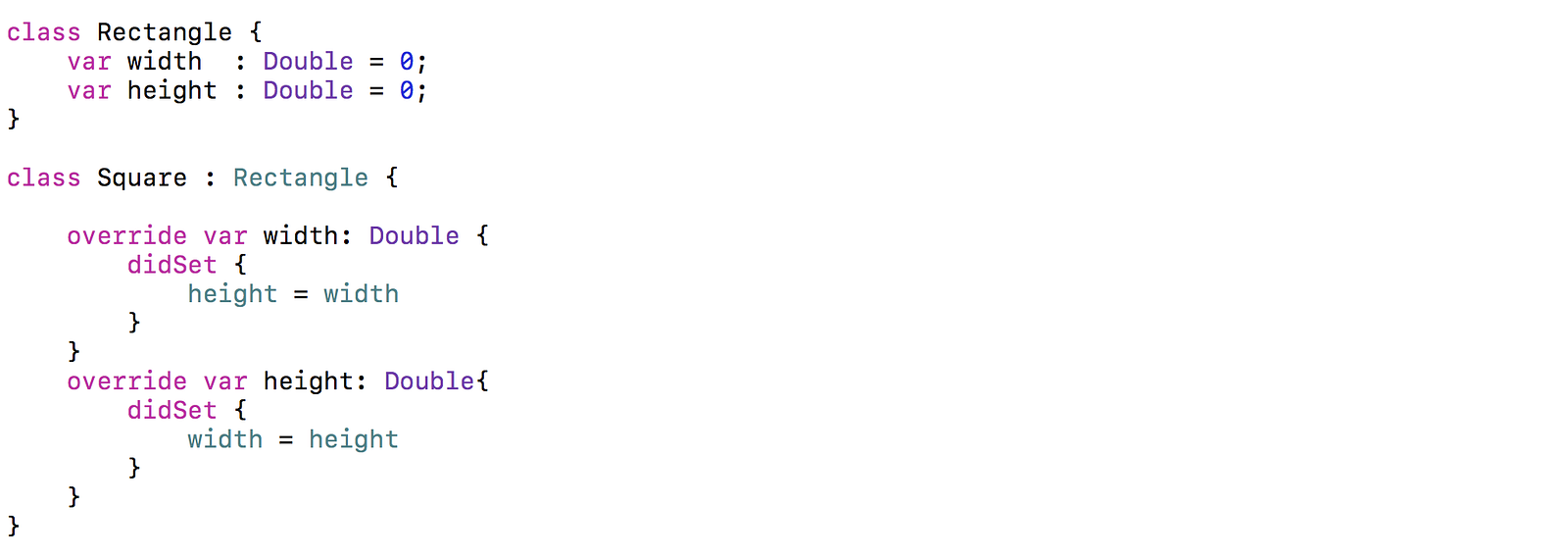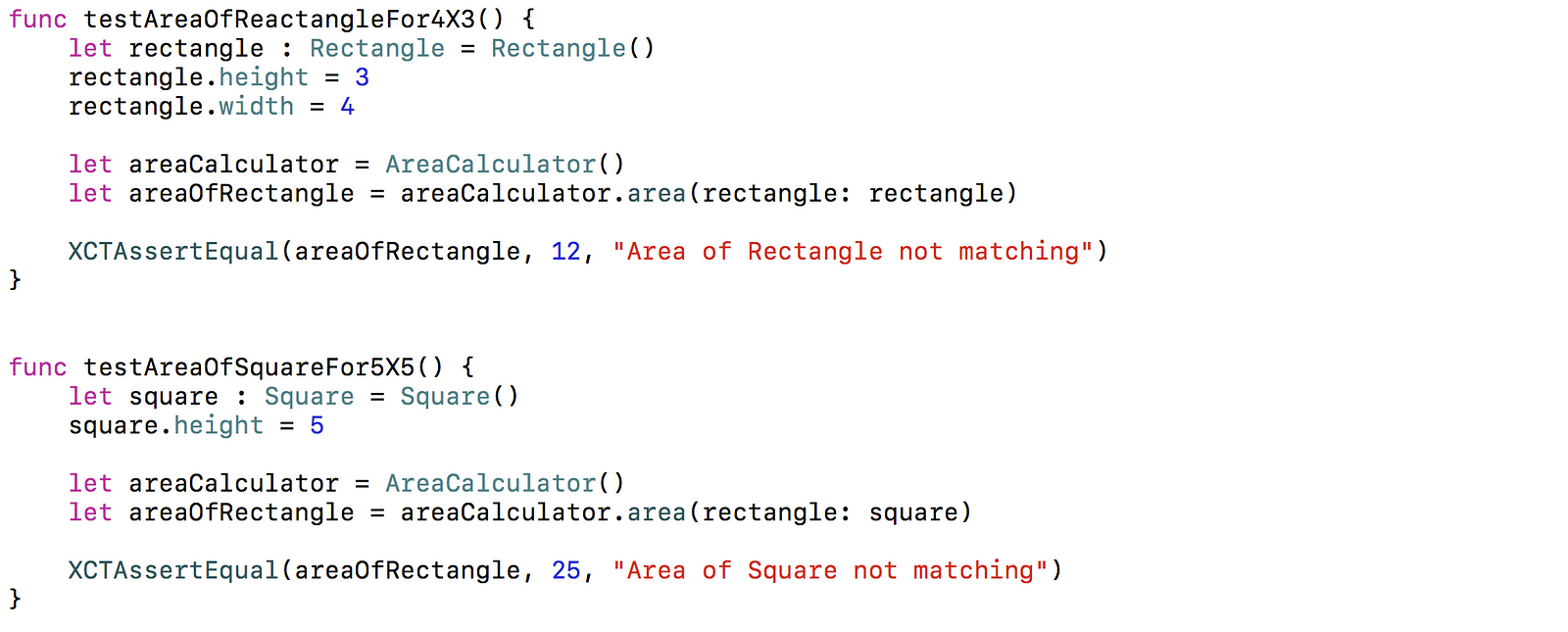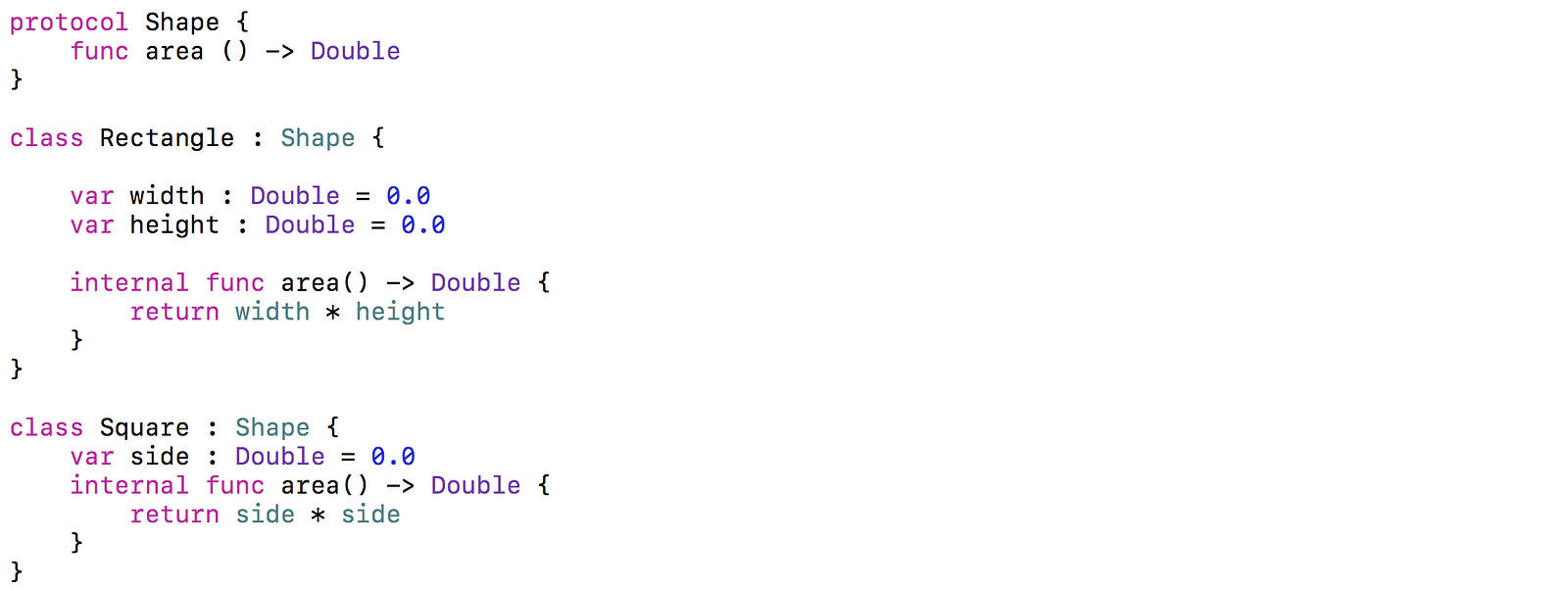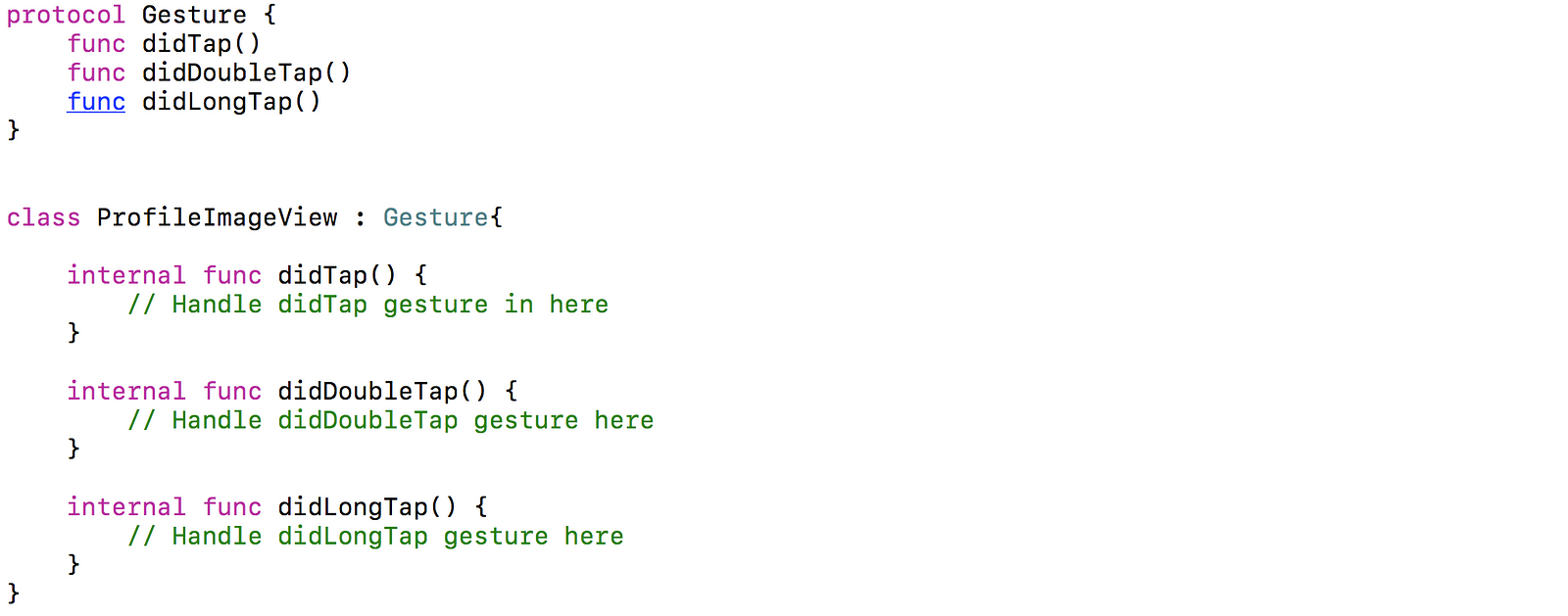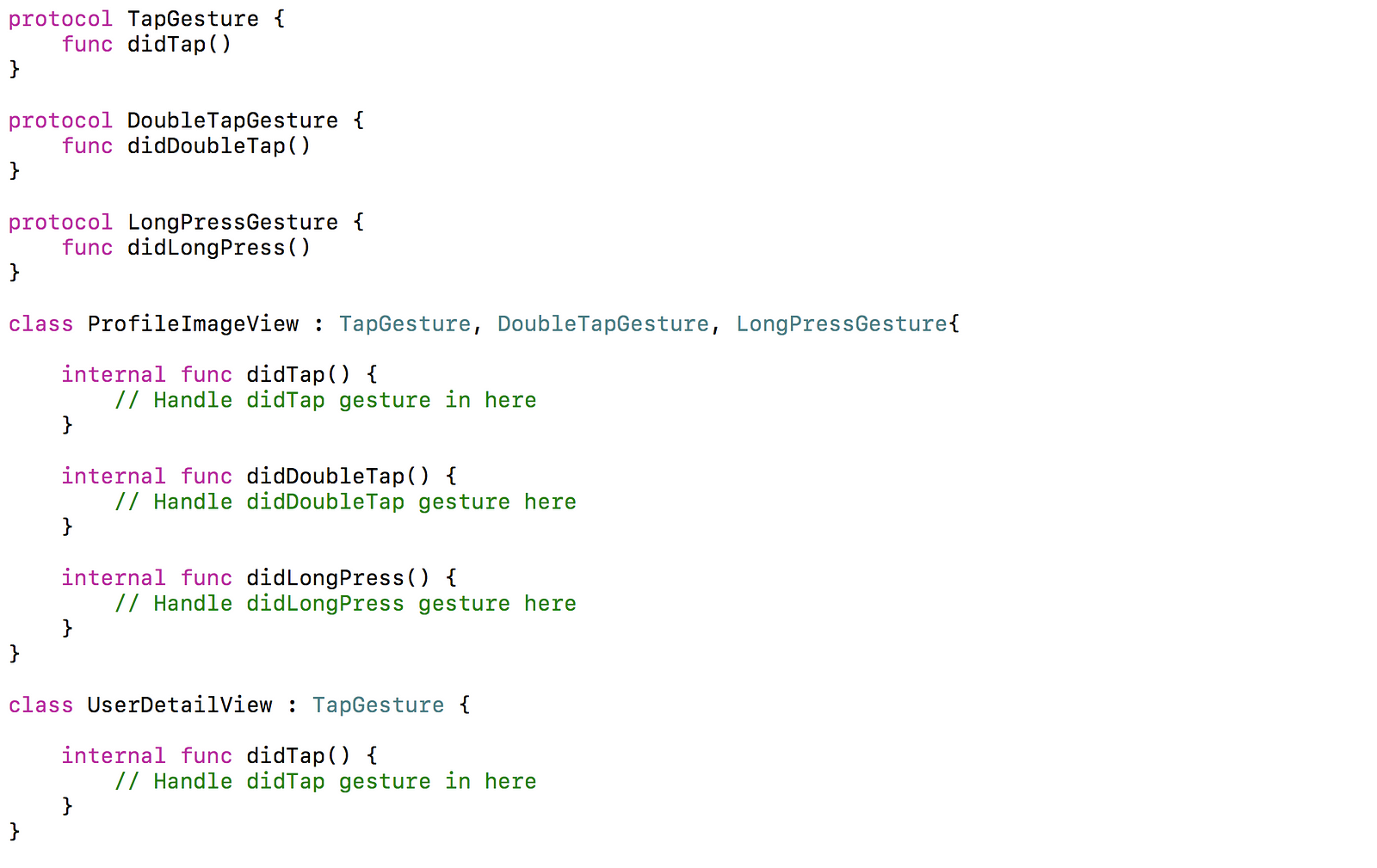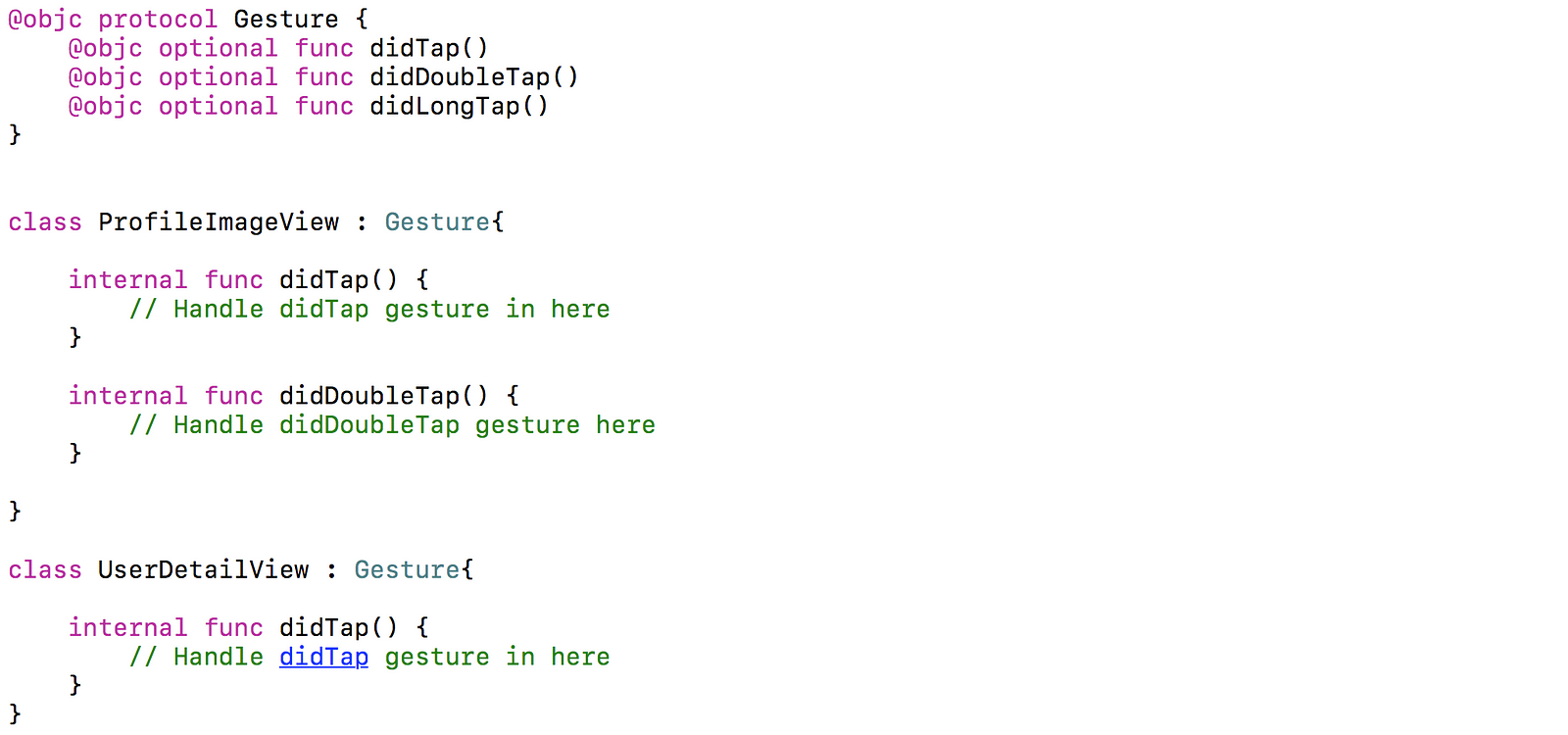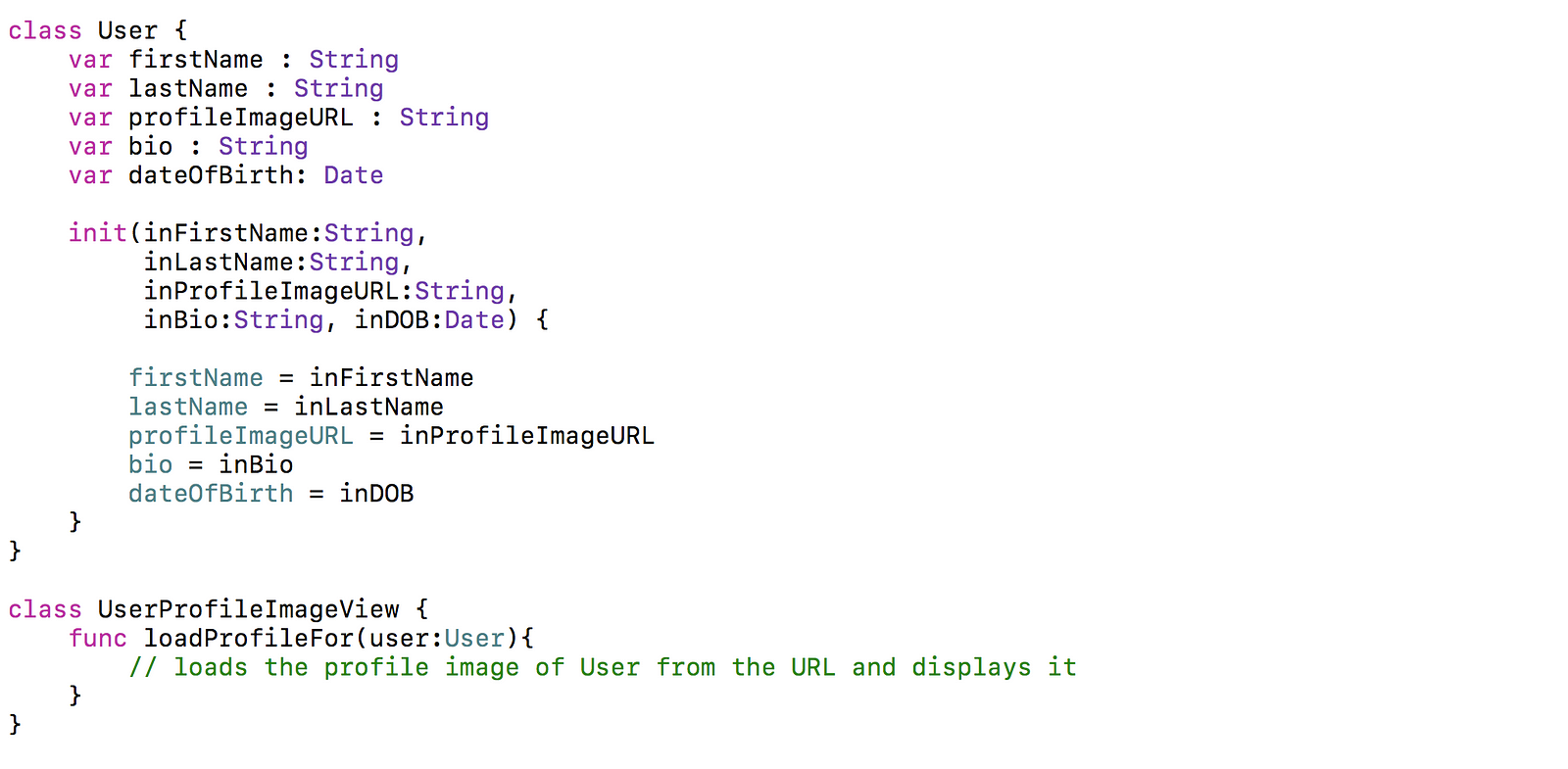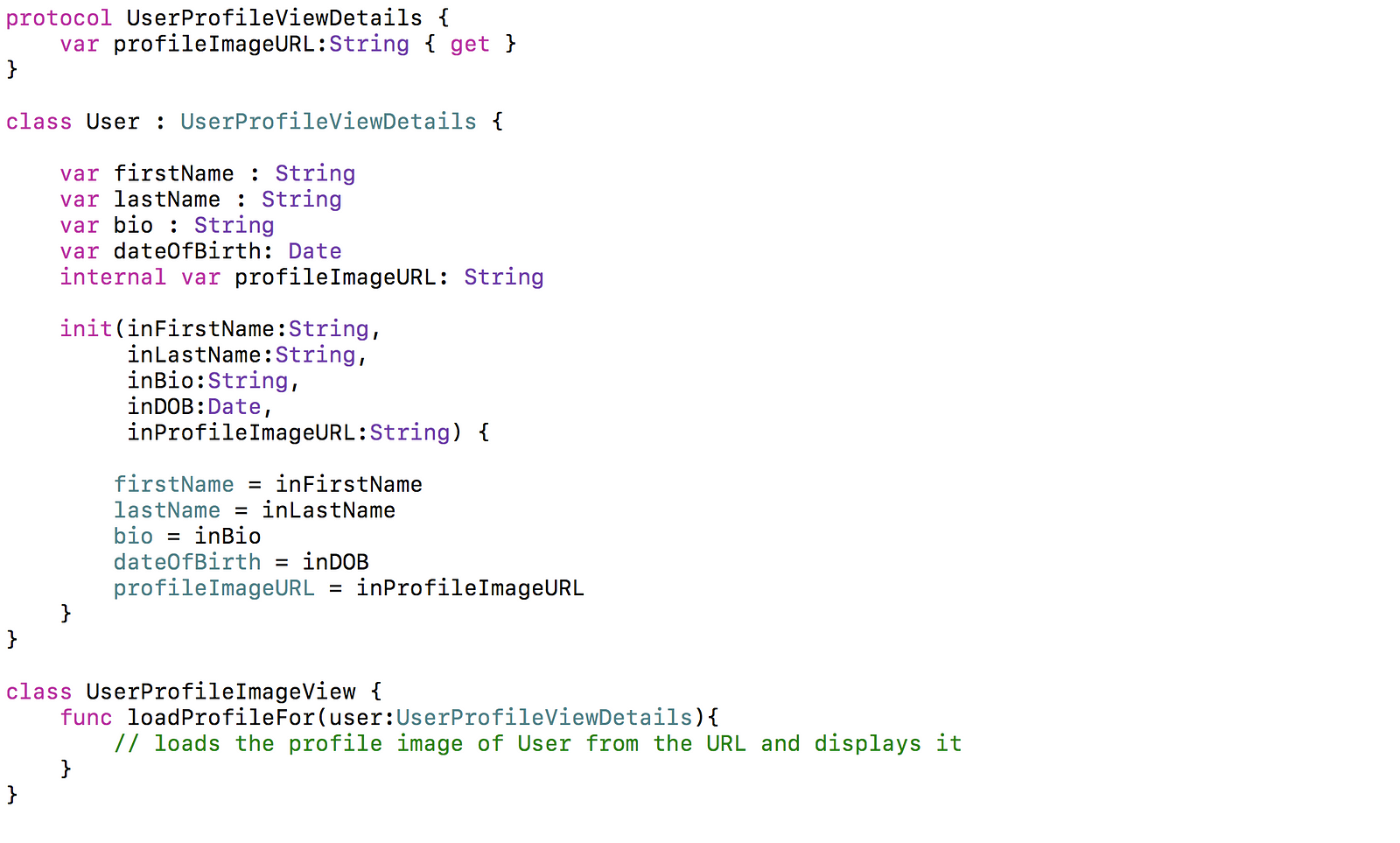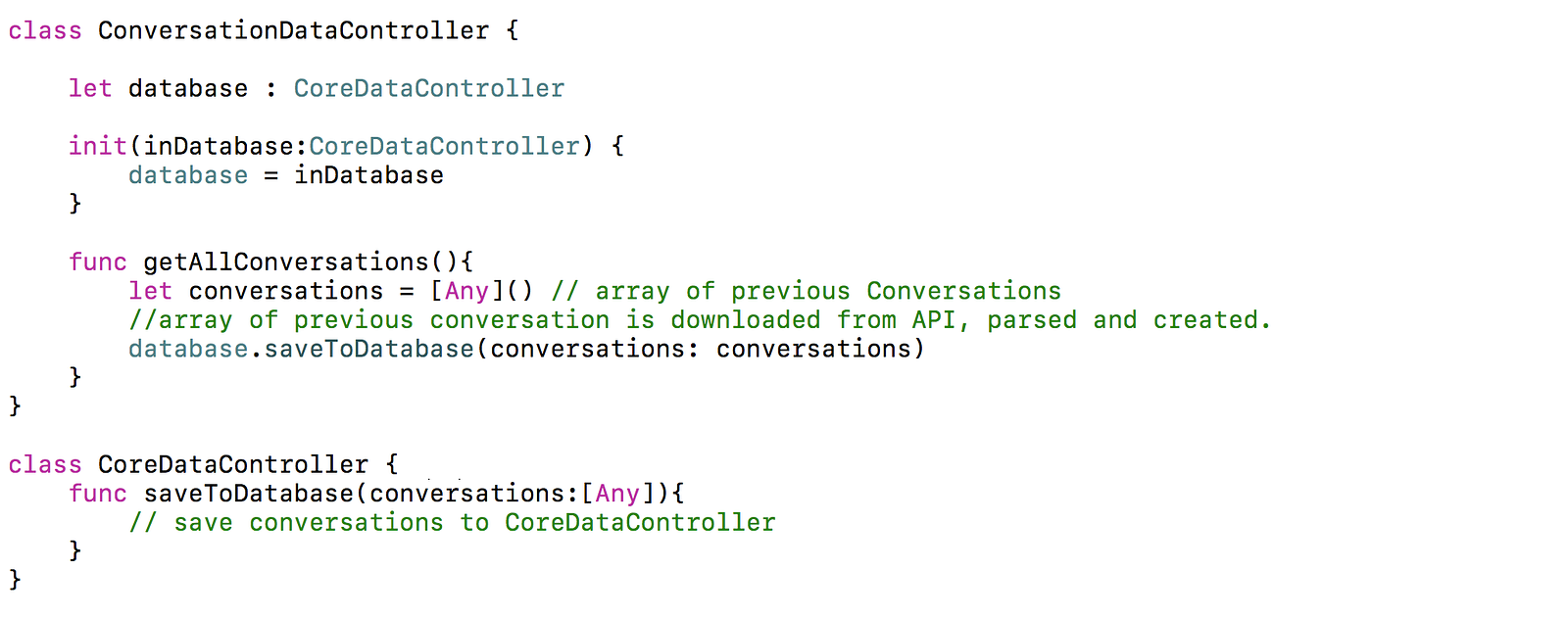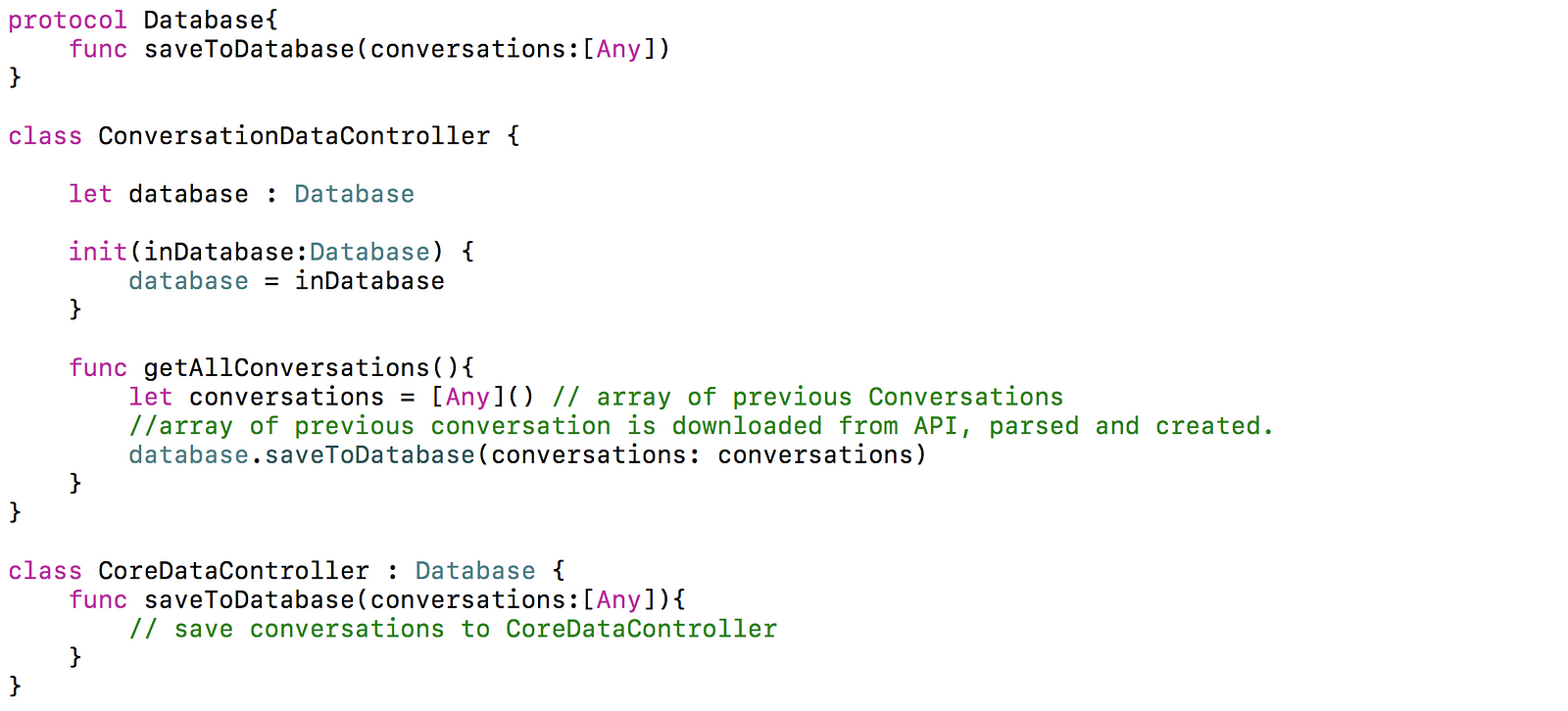SOLID is a mnemonic acronym named by Robert C. Martin used in Software Programming, It represents 5 principles of Object Oriented Programming.
- Single Responsibility Principle
- Open Closed
- Liskov's Subsititution
- Interface Segregation
- Dependency Inversion
These principle solve bad architecture problems like
-
Fragility — A change in one place breaks unexpected parts, its difficult to trace if there is no good test coverage.
-
Immobility — A component is difficult to reuse in another project or use in multiple places of same project, because it has to many dependencies.
-
Rigidity — Takes a lot of effort for change, because it affects several parts.
These SOLID principle are not strict rules, but just guidelines to improve the quality of the your architecture. Lets dig in the principles one by one
Each an every class you create/change should have only one responsibility
Let us see an example explaining it, I have to develop a messenger app screen to get the list of past conversations. So I have a ConversationInteractor which gets me the array of previous conversations.
How many responsiblity does this class have ?
- Gets the conversation data form the API
- Parse and create conversation objects from API response
- Saves the conversation array to CoreData Database
If we have to implement NSURLSession for getting Json Data from API, and JSONSerialization to parse and Core Data Stack for saving to Database, this class becomes huge monster class.
we can solve this problem moving the each responsiblity down to different classes
I have created seperate classes for each responsiblity which ConversationDataController was handling, after segregating this is how our classes looks
This principle helps you to keep your classes as clean as possible, and we have a advantage of testing each and every API separately, with previous implementation we would not be able to test fetchRemoteConversationJsonData(), convertJsonToConversation(data:Any)and saveToDatabase(conversations:[Any]) because they were private functions inside ConversationInteractor. Now it seems we can test each an every pieces (ConversationInteractor, RemoteService, ConversationDBOperation) separately.
As we can see all the 3 classes are connected via a protocol, which can be easily decoupled, we would be covering this topic in detail further.
Classes and Modules should be open for extension but closed for modification
Strive to write code that doesnt have to change everytime the requirements change.
To understand this principle easily lets take a basic example of calculating the area of geometry shape.
Lets say we have requirement to calculate area of rectangle, so the Rectangle and related AreaCalculator class looks like shown below
Now the requirement has come to calculate area of not only Rectangle even for Circle, so our AreaCalculator class will look something like
This will work but what if tomorrow one more requirement comes to calculate area of Triangle, the area funtion inside AreaCalculator class keeps growing with if else conditions, according to Open Close Principle we should not modify the existing class rather extent it.
One way of solving this problem is create a protocol (which is similar to Interface in Java) called Shape and declare area protocol method, implement the Shape protocols inside Rectangle or Circle or any other geometirc shape class, if it is confusing still may be checking the code below may clear it.
so if there is requiremnt tomorrow to calculate the area of even Triangle, we should be able to achive it without modifying the existing AreaCalculator class just by extending the Shape Protocol for Triangle, This obeys the SOLID Open Close Principle.
Thats a very common example for understanding the principle of not modifying the working class, lets see some real world example for Open Close Principle, very common example which we use on most of case when showing some data on UITableView, say we have requirement to show list of products and ads in the ListView or TableView, the ViewController or ActivityController would look something like as shown below.
Looks like something similar to our old AreaCalculator problem right, say suppose if we need to display new type cell called SuggestionCell, we need to go and change the existing ListViewController handling the new type of cell, this ListViewController is not obeying the OCP. Now let’s apply OCP to our ListViewController, the class should be opened for extension and closed for modification, which means we should not modify the ListViewController but should be able to support new types of cells. Let’s create protocol SectionHandler which has method related to creating a UITableViewCell and sectionType property, SectionContainer which handles all the types of SectionHandlers.
If we checkout the above snippet, can see the SectionContainer picks respective SectionHandler based on the cellModel type and calls tableView related method asking for UITableViewCell, which means we should be having the SectionHandlers w.r.t. the use case, here in our case its ProductSectionHandler and AdSectionHandler, both confirming to SectionHandler protocol.
Okay its kind of confusing right, now let’s see our original ListViewController which is obeying to OCP, so we can understand it better.
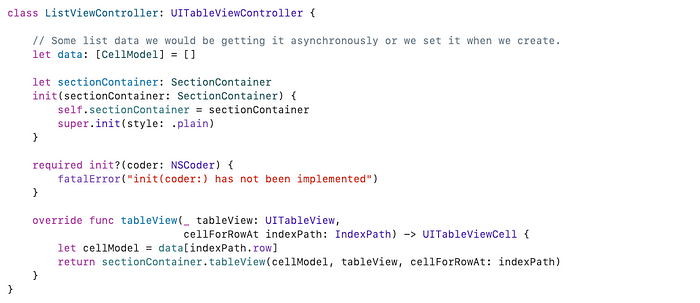
tableView:cellForRow indexPath function, how is the ListViewController created? well checkout below.
Now kind of convinced? No!! ok prove me if we add new SuggestionCell to list how it will look, ok let’s see below.
Kind of agreeing now? we didn’t change the existing class ListViewController for supporting new SuggestionCell, we just created the new SuggestionSectionHandler class confirming to SectionHandler for supporting the new SuggestionCell.
Pictorial representation of Open Close Principle in brief shot.
Child classes should never break the parent class type definitions
It means, we must make sure that new derived classes should extend the base classes without changing the base class behavior
As simple as, a subclass should override the parent class methods in a way that doesnt break the funtionality of base class from client point of view.
Lets see this with an example, we have two classes Rectangle and Square since Square is also a form of Rectangle, so Square is subclass of Rectangle
Here in the above block Square inherits the width and height property from Rectangle and overrides the width and height property to return the same height and width since it is Square. Since our requirement is to calculate the area of Rectangle and Square, we will to use the AreaCalculator class.
Lets go a head and write Unit test cases to calulate the area of Rectangle and Square
In above both test cases should pass since we have used instance of Rectangle to find area of retangle and instance of Square to find area of sqauare, now lets go a head and create a test case in which we will try to substitute object of Rectangle with object of Square, since Square inherits from Rectangle we should be able to find area of rectangle with Square instance.
In the above test case we have used instance of Square class to find the area of rectangle, since square inherits from Rectangle, but its very unfortunate that the above test case fails, the AreaCalculator returns the value of 16, were as the expected area was 12, this violates the Liskov’s Principle of Derived class (Square) breaking the parent class (Rectangle) funtionality of caluculating the area. We can solve this problem breaking the inheritance
The solution seems similar to Open Close Principle, so based on above example we can conclude that violating Liskov’s Principle violates Open Close Principle as well.
Make fine grained interface that are client specific
This principle solves FAT interface problems of Object Oriented Programming
A interface is called FAT when it has too many methods which contains more information than we really want.
Lets understand Fat Interface in Protocols with an example, we have a GestureProtocol with the method didTap: which a View would be using it to handle the Gesture
After sometime as usual the requirement came to handle more gesture like didDoubleTap: and didLongPress: so our GestureProtocol becomes
Again as usual not all the Views in our app requires all the gestures some View would require only didTap: gesture in that case our UserDetailView class which would need only didTap: gesture would look like
We can solve the problem using little protocols instead of a big ones, the below code snippet shows segregation of Gesture protocols into small ones
Other way we can solve this problem in swift 3.0 is using @objc key before the protocol declarations and protocol methods, which in turn gives us a options to declare a protocol method as optional, who ever wants can implement, the below code snippet shows the same.
Now lets dig into Fat Interface in Classes with an example, we have view in our app which displays the user profile photo, the two classes User and UserProfileImageView classes looks like shown below.
Observing closely the above snippet, the UserProfileImageView’s loadProfileFor(user:User) function requires only the profileImageURL details, but unfortunately we are injecting too many informations in it, we can solve this problem using UserProfileViewDetails protocol which just has the information required by UserProfileImageView’s loadProfileFor(user:User), the below code will explain you detail.
Now the UserProfileImageView’s loadProfileFor(user:UserProfileViewDetails) which is the client has only the profileImageURL information with it to display the User Profile Image, which agrees with the Interface Segregation Principle
High level modules should not depend on low level modules both should depend on Abstractions
Lets Consider the class ConversationDataContoller which we used in Single Responsibility Principle
here the CoreDataController is a low level module, its easy to reuse in other projects, the problem is with high level module ConversationDataController, its tightly coupled with CoreDataController.
Lets discuss this in detail, as I have mentioned earlier the ConversationDataController is used in the Messenger App to get the previous conversations json, parse it, and save to Core Data Database, so it can use the previous conversations to display it offline as well in the Messenger App, now new requirement from a client or product team came like can we use the same ConversationDataContoller from Messenger App into another App, with little change something like use File System Archiving instead of Core Data for saving the previous conversations.
In that case we cannot use the ConversationDataContoller into another app easily because it is tightly coupled with CoreDataController or in other words it has a dependecy in low level module CoreDataController.
We can solve this dependency using a Database Protocol. In this way ConversationDataController can use abstract protocol without caring for type of database used, lets see how the ConversationDataController will look after applying this.
Now you can reuse the ConversationDataController without any hazzle or hectic into another App which uses File Sytem Archiving for database, just by including the FileSystemArchiving class as shown below.
- Each an every class should have only one responsibility
- Should not modify the existing class for change requirement, rather extent the class
- Extending or Inheriting a child/derived class should not break any parent or base class functionality
- The Interface or class API’s to client should have minimum information required by the client
- Class A should not depend on Class B or vice versa, both should be losely coupled
Use SOLID principles as your weapon in the war of coding :)
